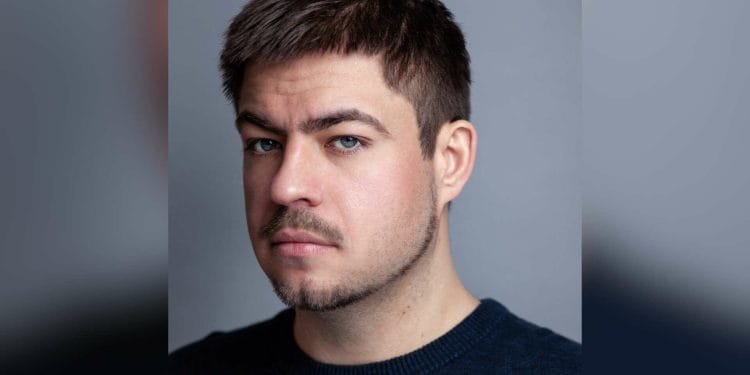Matt Bond directs PlayAI, a unique theatrical project, written by ChatGPT (an AI model which interacts in a conversational way) which will play at Riverside Studios.
PlayAI seeks to prompt a conversation about the future of our industry and the relationship it will have with AI.
The show will hold a panel debate after the final performance, with the panellists to be announced.
PlayAI is at Riverside Studios Friday 28 April – 7pm & Saturday 29 April – 1pm, 4pm & 7pm
You’re directing PlayAI, what can you tell us about this unique show?
The show is effectively a theatrical experiment which seeks to answer questions pertaining to what the capabilities of AI (specifically ChatGPT in this instance) are in relation to putting on a piece of theatre. The software has written the script (albeit with much prompting) and is giving suggestions for staging, lighting, sound and set design.
What inspired the idea to present a play written by AI?
I feel the time is right for a show like this as ChatGPT has entered the zeitgeist in not even the space of a year and it is going to have a profound impact on the industry – those who work in it and those who consume theatre. It could be said that 2023 is to AI what 2007 was to the iPhone and the mass adoption of social media.
There have been some effects of those innovations that were unintended and, perhaps, we would do things differently so far as those technologies are concerned if we had the chance to go back and start again. With AI we still have a bit of time before its mass adoption and, as an industry, we can have a conversation about how we negotiate the inevitability of the technology, the needs of our industry and the people who work in it. Maybe such a conversation could lead with how we can use the technology to improve creativity, working practices and the experience for audiences and guard against excessive loss of jobs, automation etc.
How far do you think, or hope, you can take this project?
Personally, I think for the project to have the most impact it should be repeated for the next several years in order to continually assess the progress the technology is making, the impact it is having and where people feel it is going in relation to our industry and also to discuss what we can all do to make sure its implementation is as positive and devoid of harm as possible.
How have you had to adapt the working relationship between director and writer ?
So far as PlayAI specifically is concerned, this relationship is one of the main differences between this and a ’normal’ production. I think we will soon encounter a new word entering the modern lexicon – prompter. I can’t claim to be the writer of the piece, ChatGPT is. But without my input, prompting it to write, it wouldn’t be able to produce anything.
This process gives me a lot more control and I suppose gives the director the ability to create a more unified and integrated vision for a production. I’m sure some directors and others in the industry would view that as a good thing. Some will mourn the loss of what can be discovered through collaboration. Is this relationship going to become the new norm? Time will tell.
What do you think PlayAI will tell us about the future role AI will play in the industry?
I think the most remarkable thing about PlayAI and how it relates to the role of AI in our industry in the future is the obvious, and less obvious, potential in AI’s application. This technology is going to disrupt many industries no doubt about it. How long that will take is anyone’s guess at the moment I think and theatre is no different. Undoubtedly, PlayAI showcases the amazing progress AI has made in a short space of time but it also highlights where it falls short too – come along to find out more!
What’s been the biggest challenge of directing this play so far?
There was some initial backlash when the project was announced and perhaps I was a little naive to be surprised by this. AI is, currently, more of an idea, a sunlit upland of self-driving cars to some, a nightmarish robot adorned hellscape to others, rather than something we can currently quantify.
I’m not saying that there aren’t potential pitfalls, this is why I’m doing this project in order to start a conversation about it all, but I do think people should consider that AI may have a democratising effect by allowing some people who found writing inaccessible, for language or disability reasons, to explore ideas and formulate them.
Along with the metaverse, It could allow people to construct virtual theatres, either to try out staging or technical ideas, demonstrate a production to investors or even as a new genre of theatre entirely. Furthermore, it could be argued that given the criticisms surrounding some commercial theatre; it’s formulaic (an accusation especially levied at jukebox musicals), there are too many longstanding productions and they are often being changed to make them more efficient and of lower quality, it’s the same faces involved on and off the stage etc, the feared effects of AI in theatre, that it undermines creativity and originality, are already here – with humans taking the place of software.
What would you say to anyone thinking of coming along to see PlayAI?
PlayAI is an experiment. We’re hoping audiences will leave thinking about the implications AI could have on not just our industry, but also society.

















